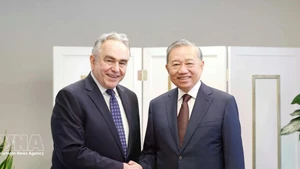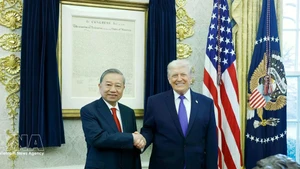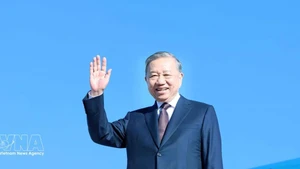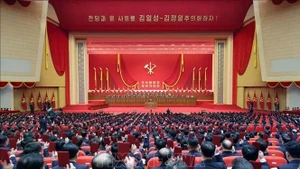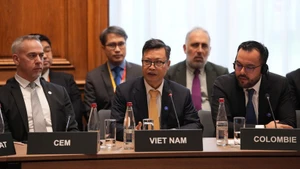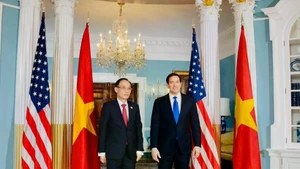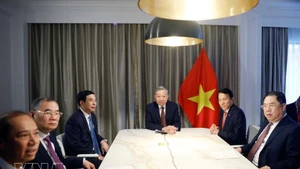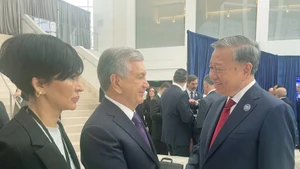Vietnam's accession to ASEAN paved the way for other countries such as Laos, Myanmar, and Cambodia to join the association, turning ASEAN into a cooperative community regardless of political differences.
With Vietnam's participation, the regional bloc entered a new era. Vietnam's role and contributions have been recognised in the process of shaping and forming ASEAN's strategies, directions, and development plans, especially in promoting regional cooperation with major partners such as the US, the European Union, China, and India.
In the current stage, Vietnam has made significant contributions in defining the goals, development orientations, and major policies of the bloc. The country has participated in building and adopting many important documents, including the ASEAN Vision 2020, ASEAN Charter, ASEAN Community Vision 2025, comprehensive roadmaps for building the community, and various other key pacts, especially those related to connectivity and narrowing development gaps.
According to Ambassador Vu Ho, Acting Head of ASEAN SOM (Senior Officials Meeting) Vietnam, the nation initiated many operational mechanisms of the association, some of which continue to be the core ones, for example, the establishment of the ASEAN Defence Ministers' Meeting-Plus (ADMM-Plus) in 2010, ASEAN-Plus mechanisms, the inclusion of Russia and the US in the East Asia Summit (EAS) in 2010, and the establishment of the ASEAN Community in 2015.
Vietnam has held the ASEAN rotating chair position three times in 1998, 2010, and 2020. Especially in 2020, the country effectively led the association's activities from in-person to virtual meetings, with its flexibility and proactiveness helping ASEAN stand firm and overcome the difficulties caused by the COVID-19 pandemic.
In 2021, participating in the first post-COVID-19 in-person ASEAN Leaders' Meeting, Prime Minister Pham Minh Chinh presented a series of initiatives such as the plan to provide vaccines to the people, the establishment of the ASEAN Centre for Emergency Public Health Situations and Emerging Diseases, and promoting post-pandemic economic recovery and development, which demonstrated Vietnam's proactive and positive role.
Former ASEAN Secretary-General Dato Lim Jock Hoi praised Vietnam for showing strong leadership in leading a collective regional response to the pandemic.
Given complex global and regional developments, Vietnam has actively joined in the process of defining principles and "playing rules" for the region, thus together with ASEAN ensuring peace, security, stability, and promoting dialogue and cooperation. Vietnam has promoted the Treaty of Amity and Cooperation in Southeast Asia (TAC) to become the code of conduct for relationships between bloc member nations and with ASEAN's external partners.
Vietnam has also made active contributions to the drafting and adoption of the ASEAN Outlook on the Indo-Pacific (AOIP), helping shape the bloc’s common position and promote cooperation based on its values, principles, and centrality.
Regarding the East Sea/South China Sea issue, Vietnam and other ASEAN member countries have engaged in the negotiation and signing of the Declaration on the Conduct of Parties in the East Sea (DOC) between ASEAN and China; as well as negotiations for an effective and legally-binding Code of Conduct in the water (COC).
Cooperation with ASEAN has always been an important pillar in Vietnam's foreign policy of independence, self-reliance, diversification and multilateralisation, and international and regional integration over the past 28 years.
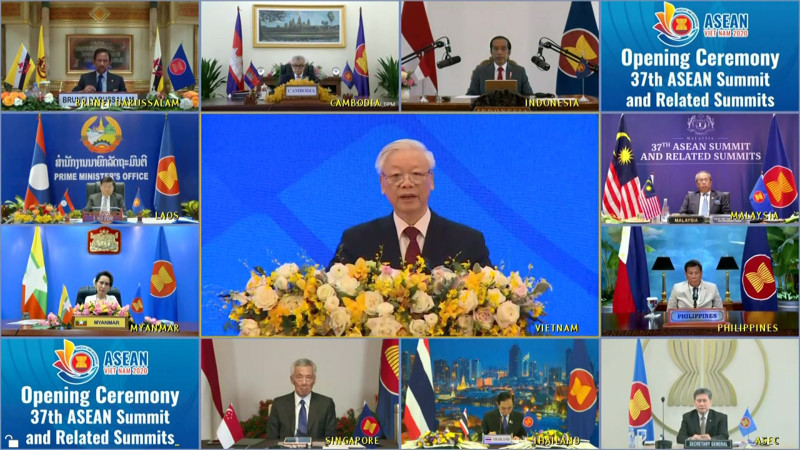
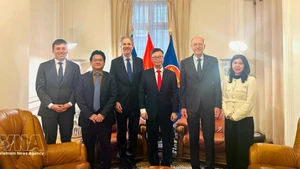
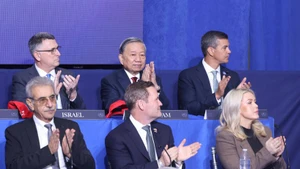
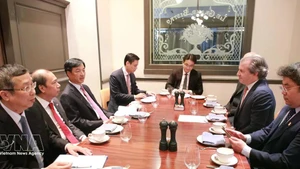
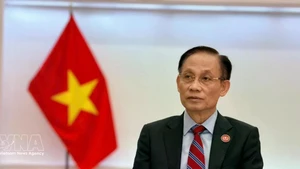
![[In pictures] Party General Secretary To Lam meets US President Donald Trump](https://en-cdn.nhandan.vn/images/dcd63867a0eed4c7753eb4bfb346593abc1ce710dfab8ad1b9aebd75ea6bf930b2ea13e4664779d689ba40aadd80f76d5d05d1208720fd7b0d811ace3a3297321c78cf738400e136e3f2d8790b24d43646e46edbe19517144a88f6ffb0d528f153574a7109328cc0949e4a4c16433c2ff751541639eefe4490518227264cbf8e/vna-potal-tong-bi-thu-to-lam-gap-tong-thong-hoa-ky-donald-trump-8599945.jpg.webp)
